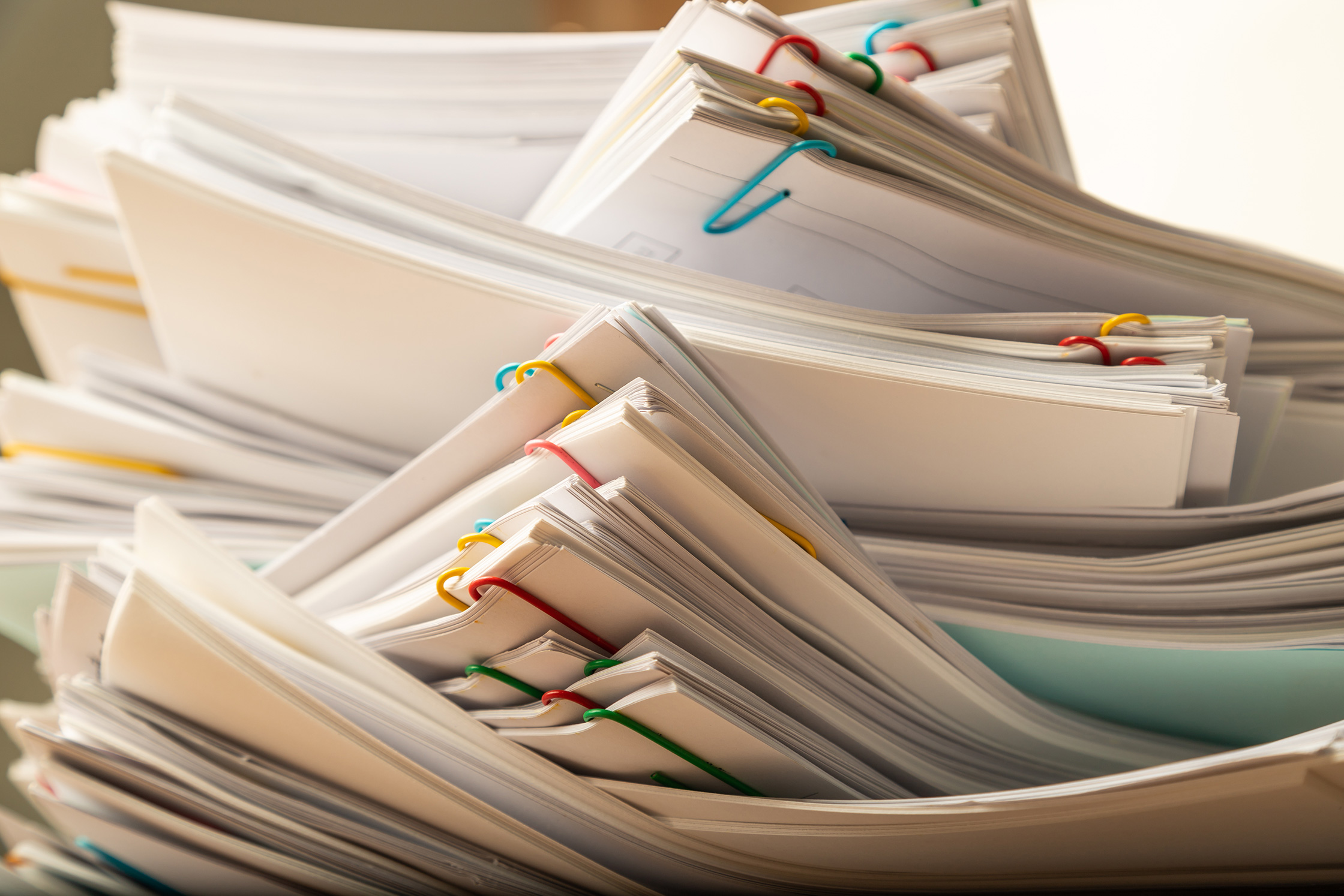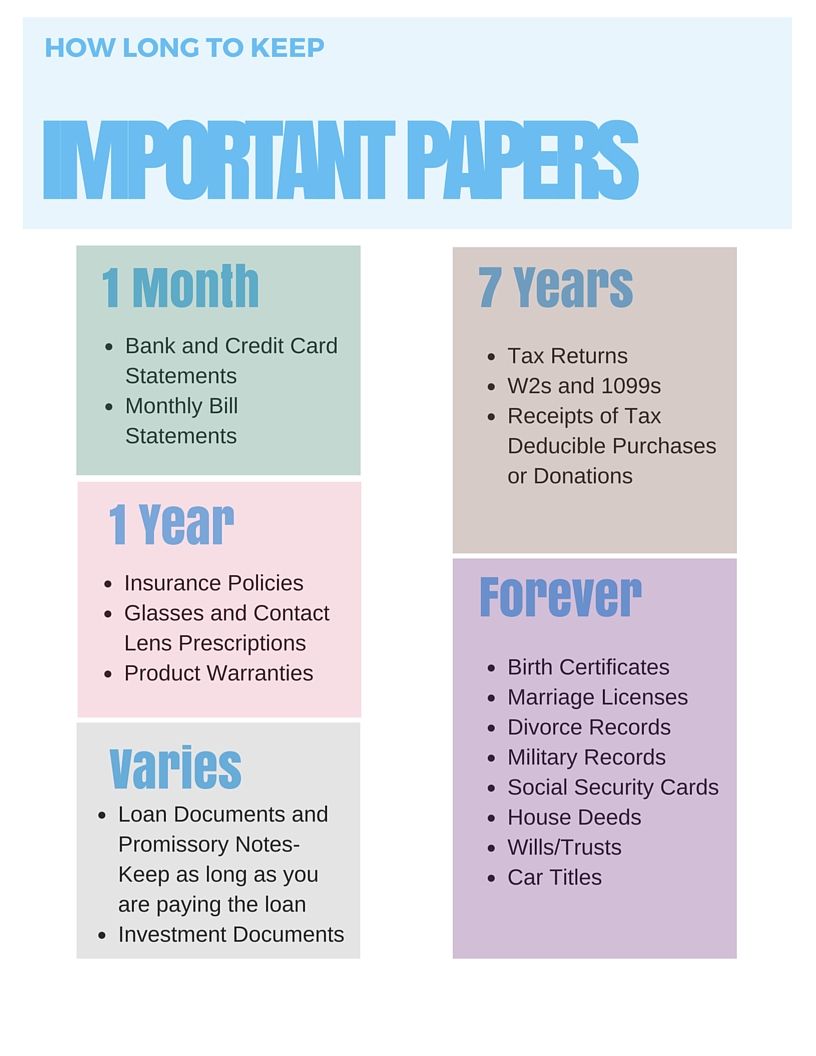How Long Should You Keep Old Tax Paperwork?

Managing old tax paperwork can often feel like a cumbersome task, yet it's crucial for financial organization and preparedness. The decision on how long to keep tax documents can influence not only your immediate tax filings but also future audits or unexpected legal issues. Let's delve into why retaining these documents is important, how long you should keep them, and the best practices for storage.
Why Retain Tax Records?

Keeping your tax paperwork isn’t just about following tax laws; it’s about being prepared for various scenarios:
- Audits: The IRS has a window of up to six years to audit your returns. Having records readily available can simplify this process.
- Refunds or Amended Returns: If you discover overlooked deductions or credits, you might need your old tax paperwork to amend your returns.
- Loan Applications: Financial institutions often require tax documents as proof of income when processing loan applications.
- Inheritance and Estate Planning: If you’re dealing with estates or inheritances, previous tax documents become vital for legal purposes.
- Divorce and Asset Division: During divorce proceedings, old tax records can be essential for property settlement and financial division.
How Long Should You Keep Your Tax Documents?

| Document Type | Retention Period |
|---|---|
| Federal Tax Returns | Permanently |
| Supporting Documentation (e.g., W-2s, 1099s) | At least 7 years |
| Business Income Records | At least 7 years |
| Investment Records (Stocks, Bonds, etc.) | Until the asset is sold and tax implications are resolved (then 7 years) |
| Retirement Account Contributions | Permanently |

📂 Note: While seven years is commonly suggested for tax records, if you omit income or file fraudulent returns, the IRS may audit you for indefinitely.
Tips for Organizing and Storing Tax Paperwork

Efficient management of your tax records is key to maintaining financial health:
- Digital Archiving: Scan your documents into digital formats for cloud or local storage. Ensure backups are secure.
- Paper Files: Use a filing cabinet or dedicated space, labeling each year clearly with files for different categories of documents.
- Document Retention Policy: Develop a policy to decide when to discard outdated documents to avoid clutter.
- Keep Originals: While digital copies are handy, keeping physical documents might be necessary in some cases.
- Confidentiality and Security: Consider shredding or securely destroying documents that are no longer needed to prevent identity theft.
The Process of Disposal

Disposing of old tax records involves several steps:
- Create an Inventory: Keep track of what you’re keeping and what you’re discarding.
- Secure Shredding: Use shredding services or a quality shredder at home to destroy sensitive information.
- Environmental Considerations: Recycle the shredded paper to minimize your environmental footprint.
- Data Wiping: For digital storage, ensure files are securely deleted, or drives are physically destroyed if necessary.
- Legal Compliance: Ensure you’re following local laws regarding document retention and disposal.
💼 Note: If you're considering shredding documents in an office setting, ensure all stakeholders agree on the documents to be destroyed.
Remember, keeping old tax records isn't just about following the rules but about ensuring your financial security and compliance with tax laws. Balancing the need for record-keeping with the avoidance of clutter is key to managing your financial documentation effectively. Whether it's for potential audits, loan applications, or inheritance issues, having a well-organized system in place can save you time, stress, and potential legal headaches down the line.
What happens if I throw away tax documents prematurely?

+
Discarding tax documents before the retention period can complicate audits, make amending returns difficult, and could potentially result in penalties if you cannot substantiate your tax filings.
Do I need to keep both digital and paper copies?

+
While digital copies are increasingly accepted for most purposes, keeping paper copies can provide an extra layer of security, especially in situations where originals are needed.
What about records for tax-exempt income?

+
Keep records for tax-exempt income (like gifts or inheritances) to justify exclusions from taxable income. The standard retention period applies here as well.



